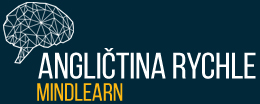Nepravidelné sloveso begin
začať, začínať
| Infinitive | beginA2 |
| Past Simple | began |
| Past Participle | begun |
put – put – put

Vety s nepravidelným slovesom begin
1. Forma: Sloveso begin – prítomný čas jednoduchý
I hope it doesn’t begin to snow when we go out.
Dúfam, že nezačne snežiť, keď pôjdeme von.
I hope that some changes for the better will begin soon.
Dúfam, že niektoré zmeny k lepšiemu začnú čoskoro.
2. Forma: sloveso began – minulý čas jednoduchý
Our problems began when dad lost his job.
Naše problémy začali, keď otec stratil prácu.
Her career began when she was still at university.
Jej kariéra začala, keď bola ešte na univerzite.
When we reached the top of the mountains, it began to snow.
Keď sme sa dostali na vrchol hôr, začalo snežiť.
3. Forma: sloveso begun – minulé príčastie
The movie´s just begun.
Film práve začal.
Aneta´s recently begun to behave in a strange way.
Aneta sa začala nedávno správať zvláštne.
4. Forma: sloveso beginning – prítomný čas priebehový
Now I am beginning to understand why you left her.
Teraz začínam rozumieť, prečo si ju opustil.
It´s beginning to snow.
Začína snežiť.
Definícia nepravidelného slovesa begin
Anglicky
VERB
(used without object), began, begun, begin·ning.
- to proceed to perform the first or earliest part of some action; commence; start:
- The story begins with their marriage.
Slovensky
Sloveso
(použité bez predmetu), začať, začal, začína, začínať.
- pristúpiť k prvej alebo úvodnej časti nejakej akcie; začať; odštartovať:
- Príbeh začína ich manželstvom.
Synonymá slovesa begin (vo význame „start“)
| commence | create | do |
| establish | found | go ahead |
| go into | inaugurate | initiate |
| introduce | launch | lead |
Synonymá slovesa begin (vo význame „come into being; become functional“)
| appear | come out | commence |
| emerge | enter | happen |
Antonymá slovesa begin (vo význame „start“)
| cease | close | conclude |
Antonymá slovesa begin (vo význame „come into being; become functional“)
| complete | disappear | end |
Časovanie nepravidelného slovesa begin
Indicative – Oznamovací spôsob
Present simple
Prítomný čas jednoduchý
I begin
you begin
he/she/it begins
we begin
they begin
you begin
Past simple
Minulý čas jednoduchý
I began
you began
he/she/it began
we began
they began
you began
Future simple
Budúci čas jednoduchý
I will begin
you will begin
he/she/it will begin
we will begin
they will begin
you will begin
Perfect – perfektívum
Present perfect
Predprítomný čas jednoduchý
I have begun
you have begun
he/she/it has begun
we have begun
they have begun
you have begun
Past perfect
Predminulý čas jednoduchý
I had begun
you had begun
he/she/it had begun
we had begun
they had begun
you had begun
Future perfect
Predbudúci čas jednoduchý
I will have begun
you will have begun
he/she/it will have begun
we will have begun
they will have begun
you will have begun
Continuous – priebehový čas
Present continuous
Prítomný čas priebehový
I am beginning
you are beginning
he/she/it is beginning
we are beginning
they are beginning
you are beginning
Past continuous
Minulý čas priebehový
I was beginning
you were beginning
he/she/it was beginning
we were beginning
they were beginning
you were beginning
Future continuous
Budúci čas priebehový
I will be beginning
you will be beginning
he/she/it will be beginning
we will be beginning
they will be beginning
you will be beginning
Perfect Continuous – perfektívny priebehový čas
Present perfect cont.
Predprítomný čas priebehový
I have been beginning
you have been beginning
he/she/it has been beginning
we have been beginning
they have been beginning
you have been beginning
Past perfect continuous
Predminulý čas priebehový
I had been beginning
you had been beginning
he/she/it had been beginning
we had been beginning
they had been beginning
you had been beginning
Future perfect cont.
Predbudúci čas priebehový
I will have been beginning
you will have been beginning
he/she/it will have been beginning
we will have been beginning
they will have been beginning
you will have been beginning
Conditional – Podmieňovací spôsob
Conditional present
I would begin
you would begin
he/she/it would begin
we would begin
they would begin
you would begin
Conditional perfect
I would have begun
you would have begun
he/she/it would have begun
we would have begun
they would have begun
you would have begun
Conditional present progressive
I would be beginning
you would be beginning
he/she/it would be beginning
we would be beginning
they would be beginning
you would be beginning
Conditional perfect progressive
I would have been beginning
you would have been beginning
he/she/it would have been beginning
we would have been beginning
they would have been beginning
you would have been beginning
Positive
Pozitívny
you begin
we Let’s begin
you begin
Negative
Negatívny
you don’t begin
we don’t begin
you don’t begin

